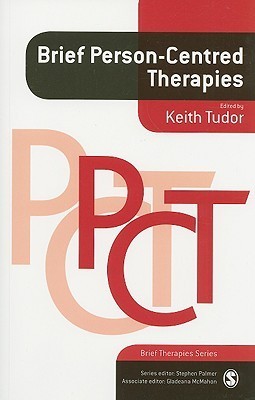
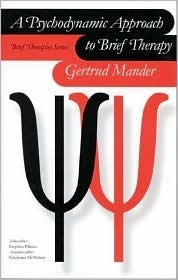
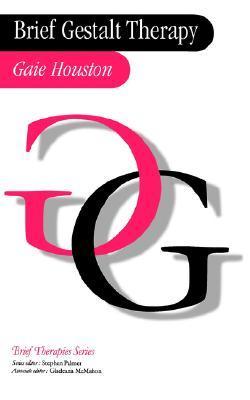
Books in series

#1
Brief Person-Centred Therapies
2008
"Can the person-centred approach work in time-limited counselling and psychotherapy? "
This is a question that many practitioners grapple with as demand for brief therapy increases - particularly in the public sector. Brief Person-Centred Therapies is the first book to tackle the subject, bringing together the experience and insights of a leading international team of person-centred specialists.
The book examines the "theoretical fit" between the person-centred approach and brief therapy. It also explores the issues which arise when working briefly in a range of different settings, including primary care, higher education and business.
Brief Person-Centred Therapies is essential reading for all person-centered trainees and for practitioners who want to work in services where brief work is called for.

#2
A Psychodynamic Approach to Brief Therapy
2000
Illustrated throughout with clinical vignettes, this book is a comprehensive guide to psychodynamic brief counselling and psychotherapy. It is ideal for those looking for a practical introduction to the subject. Following a summary of the roots and development of psychoanalytic theory, psychodynamic models of brief, short-term and time-limited work are described. The author describes their differences and similarities in terms of duration, technique and the contexts for which they were developed. Gertrud Mander then examines the basics of brief therapeutic practice from a psychodynamic perspective, starting with assessment, contracting, structuring and focusing. The active stance of the brief therapist is emphasized, and th

#3
Brief Gestalt Therapy
2003
\`Anybody with the slightest interest in brief therapy should read this book. Now that the initial controversy over brief therapy has begun to subside it is great to see how brief therapy works in practice. Gaie Houston′s book is part of a series published by SAGE which sets out to do this - and hers is particularly illuminating and accessible. As she points out Gestalt is better equipped than many mainstream therapies to be applied to situations with extreme time constraints because it is both flexible and it acknowledges the part that can be played by other therapies. But what propels Houston′s book out of the hum drum - or indeed the defensive (or offensive) diatribes about short therapy which have appeared over the past few years - is her vivid accounts of real-life sessions, both one to one and group, which punctuate the text′ - Amazon Review Brief Gestalt Therapy demonstrates how the Gestalt approach can be used effectively in brief interventions with clients. Gestalt′s distinctively integrative nature and emphasis on a highly co-operative working alliance, make it particularly suited to brief work. The book sets out the basic theory and principles of Gestalt and looks at each phase of the therapeutic process from initial assessment through the beginning and middle stages to the ending of the work. It presents clear, practical strategies for therapists to follow and in particular } aspects of Gestalt which are especially relevant to brief work -} the elements of successful therapy -} ways of improving skills. Brief Gestalt Therapy includes vignettes and detailed case studies which bring the theory alive. It will contribute much to both existing literature on Gestalt therapy and also brief therapy, and will be invaluable to trainee and practising Gestalt therapists.
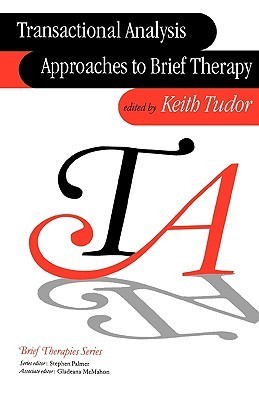
#4
Transactional Analysis Approaches to Brief Therapy
What do you say between saying hello and goodbye?
2001
Of all the approaches to therapy, Transactional Analysis (or TA) is arguably one of those most suited to time-limited work. At a time when short-term therapy is increasingly dominant as a form of practice, Transactional Analysis Approaches to Brief Therapy provides an insightful guide which both informs and challenges. Rather than a single theory, TA has developed as a group of four schools which share a common philosophy, but place different emphasis on what occurs during the therapeutic process. Written by therapists at the leading edge of developments in TA, the book presents and differentiates each of these four approaches. Through transcripts and commentaries, it shows how theory applies to practice, for exampl
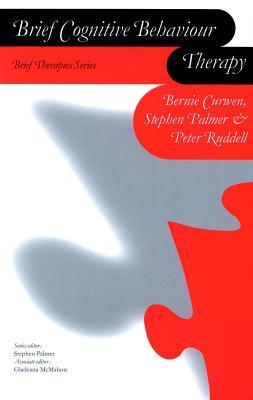
#5
Brief Cognitive Behavior Therapy
2000
\[This\] will be a useful resource for anyone who is interested in learning more about Cognitive Behaviour Therapy' - "Behavioural & Cognitive Psychotherapy "
This practical guide, based on the theory that emotional disorders are influenced by negatively biased thinking, describes how brief cognitive behaviour therapy can provide effective help to clients suffering from a wide range of disorders, including anxiety, depression, obsessive-compulsive disorder and post-traumatic stress, or those who are suicidal.
Using illustrative case material throughout, the authors outline strategies for helping clients examine and overcome unhelpful beliefs and patterns of thought at the root of their distress. Following an explanation of brief therapy and the theory behind cognitive-behaviour therapy, they describe the process of working with clients through all stages of counselling.
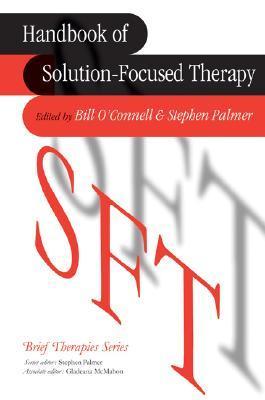
#7
Handbook of Solution-Focused Therapy
2003
\`On a scale of 0-10 I would give the Handbook of Solution Focused Therapy a nine - it met my best hopes in terms of an insight into the theory and mechanics of SFT, and gave me ideas for extending my current use of the therapy. I found it engaging, readable and well-presented, with useful reference lists within each chapter to guide further reading′ - Solution News \`This collection of fifteen chapters, each written by a different specialist in the SFT field, is a valuable contribution to the Solution-Focused therapist′s bookshelf. A must-read for any informed SF therapy practitioner - Mark McKergow, The Solutions Focus \`This book has 14 chapters on diverse applications of Solution-Focus, between introductory and closing chapters by Bill O′Connell. The book relates to work being done in the UK and in Ireland, excepting Alasdair MacDonald′s piece on research in SFT, which is an up-to-date and welcome review of research findings world-wide. All the chapters are succinct and they convey a clear impression of the lightness and excitement of this approach, for service-users and therapists alike. The book is a good read for any therapist, professional helper or service manager′ - Robert Cumming, Nurturing Potential Solution-Focused therapy is an increasingly popular approach, used by practitioners in a wide range of contexts and settings. Illustrating the breadth and depth of contemporary practice, the Handbook of Solution-Focused Therapy brings together contributions from leading practitioners in fields such as social work, education and health care to show how solution-focused techniques can be effective in many different situations. Beginning with an introduction to the origins and theory of the approach, the book examines different areas of practice, explaining how and why the solution-focused approach is applicable and highlighting the issues specific to each context. Each chapter features a case-example, which demonstrates the practical advantages and difficulties, involved in using the solution-focused approach. The Handbook of Solution-Focused Therapy is an ideal text for training courses in solution-focused therapy and a source of new ideas for practitioners trained in other approaches who want to integrate solution-focused techniques with their existing practice. Bill O′Connell is a Senior Lecturer in Counselling at University of Birmingham and author of Solution-Focused Therapy (SAGE 1998) and Solution-Focused Stress Counselling (Continuum 2001). Professor Stephen Palmer is Director of the Centre for Stress Management and the Centre for Coaching, London. He has written and edited over 25 books.
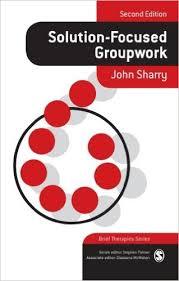
#8
Solution-Focused Groupwork
2001
John Sharry has fluency with language that allows complexity to sit side by side with clarity and ideas to flow across the page. This is a book that must be read by anyone interested in front line developments in solution focused therapy ' -" Chris Iveson, Brief Therapy Practice, London "
Solution Focused Groupwork is an innovative and highly practical guide for all professionals who use groups to help people. For those new to the approach it provides a clear, step-by-step introduction, while for more experienced practitioners it presents ideas and techniques which can be readily integrated into existing practice.
John Sharry examines the therapeutic factors which characterize solution
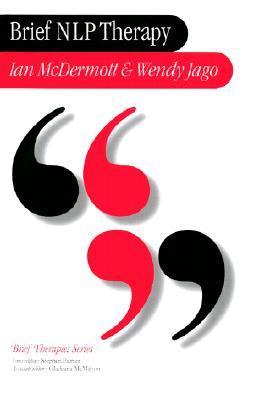
#9
Brief NLP Therapy
2000
Neuro-Linguistic Programming has evolved as an effective approach to therapeutic work which originated in the study of excellence in communication. With its focus on enabling clients to find their own solutions and achieving their full potential, NLP is of increasing interest to many counsellors and psychotherapists. Brief NLP Therapy provides a much needed guide to the core concepts underpinning NLP practice. Each concept is explained clearly in terms of its theoretical and historical development and its practical application within brief therapy. Each chapter also features a "Skill Builder" aimed at helping the reader develop the therapeutic techniques which stem from the theory. The application of NLP skills is d
Authors

Stephen Palmer
Author · 3 books
Stephen has written/edited over 50 books including the Handbook of Counselling, Handbook of Coaching Psychology, Cognitive Behavioural Coaching in Practice, Brief Cognitive Behaviour Therapy, Developmental Coaching, The Coaching Relationship and Solution Focused Coaching in Practice. He developed the PRACTICE model of coaching and counselling. He is Professor of Practice at the University of Wales Trinity Saint David. In his spare time, he produces 10 webradio stations.